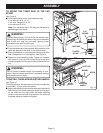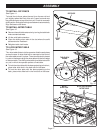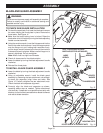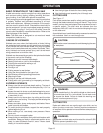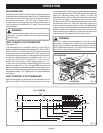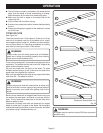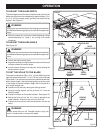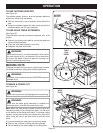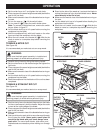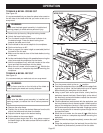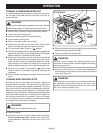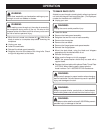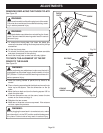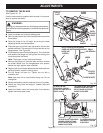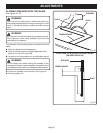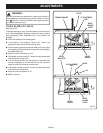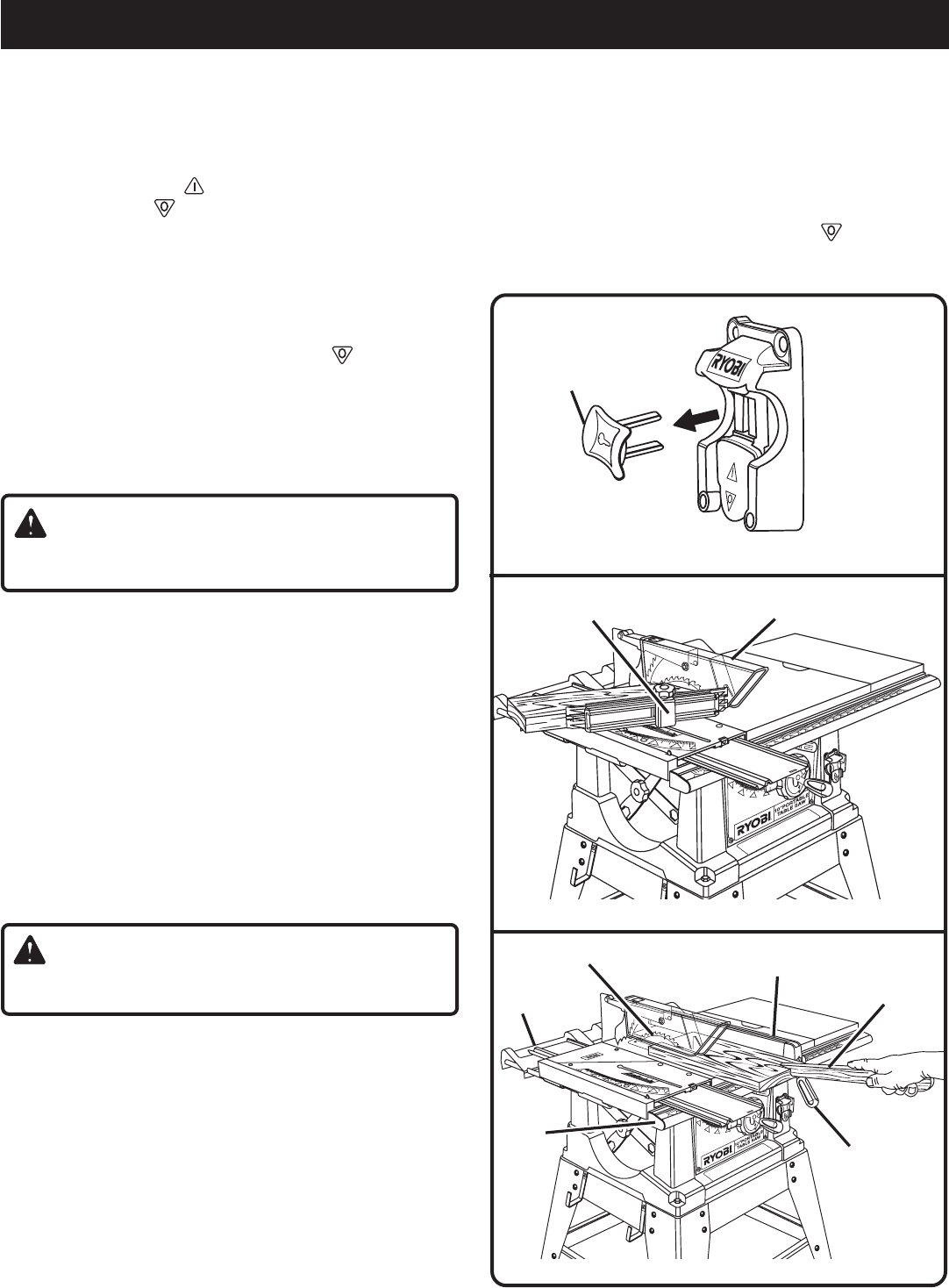
Page 24
OPERATION
Set the miter fence to 0˚ and tighten the lock knob.
Place a support (the same height as saw table) behind the
saw for the cut work.
Make sure the wood is clear of the blade before turning on
the saw.
To turn the saw on ( ), lift the switch button.
To turn saw off ( ), press the switch button down.
Note: To prevent unauthorized use, remove the switch
key as shown in figure 27.
Let the blade build up to full speed before moving the
workpiece into the blade.
Hold the workpiece firmly with both hands on the miter
fence and feed the workpiece into the blade.
When the cut is made, turn the saw off ( ). Wait for the
blade to come to a complete stop before removing the
workpiece.
TO MAKE A MITER CUT
See Figure 28.
It is recommended you make test cuts on scrap wood.
WARNING:
Make sure the blade guard assembly is installed and
working properly to avoid serious personal injury.
Remove the rip fence by lifting the locking handle.
Set the miter fence to the desired angle and tighten the
lock knob.
Place a support (the same height as saw table) behind the
saw for the cut work.
Make sure the wood is clear of the blade before turning on
the saw.
Let the blade build up to full speed before moving the
workpiece into the blade.
Feed the workpiece into the blade until the cut has been
completed.
TO MAKE A STRAIGHT RIP CUT
See Figure 29.
It is recommended you make a test cut on scrap wood.
WARNING:
Make sure the blade guard assembly is installed and
working properly to avoid serious personal injury.
Position the rip fence the desired distance from the blade
for the cut and securely lock the handle. Adjust the scale
to zero at the cutting edge of the blade.
Place a support (the same height as saw table) behind the
saw for the cut work.
Make sure the wood is clear of the blade before turning on
the saw.
Use a push block or push stick to move the wood through
the cut past the blade. Never push a small piece of
wood into the blade with your hand, always use a
push stick. The use of push blocks, push sticks, and
featherboards are necessary when making non-through
cuts.
Fig. 29
RIP FENCE
BLADE
PUSH STICK
OUTFEED
SUPPORT
FRONT
RAIL
LOCKING
HANDLE
Fig. 28
MITER FENCE
BLADE
GUARD ASSEMBLY
Fig. 27
SWITCH
KEY
SWITCH IN LOCKED POSITION
Stand to the side of the wood as it contacts the blade to
reduce the chance of injury should kickback occur. Never
stand directly in the line of cut.
Make sure the wood is clear of the blade before turning on
the saw.
Let the blade build up to full speed before feeding the
workpiece into the blade.
When the cut is made, turn the saw off ( ). Wait for the
blade to come to a complete stop before removing the
workpiece.



